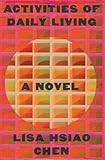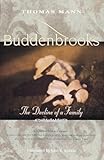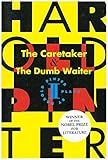This is my year of reading organized roughly by author and not in any kind of chronological order. I chose the books that made the biggest impact on my own writing/life. For the sake of not having too much to write about I stuck to fiction and excluded books I wrote about elsewhere. I feel truly happy to have mostly published literary criticism this year, but I used to be an avid blogger and old habits die hard, hence The List.
 Finally Finishing D.H. Lawrence’s The Rainbow After 2.5 Years
Finally Finishing D.H. Lawrence’s The Rainbow After 2.5 Years
Lovely, like walking a marathon to zero fanfare. Fond memories of reading it at clinics awaiting Covid tests, on assorted park benches, and in the bath, all while never transgressing a 30-mile radius.
First Love and My Phantoms were the new books I read this year that meant the most to me, the ones I keep rereading (mercifully, they are short—their one instance of mercy). I love her narrators’ harshness and vulnerability, the “machine” scene in First Love is especially gutting.
This was also the year I got into Ivy Compton-Burnett, especially Manservant and Maidservant, or as I like to call it Damn and Wow. A novel so British no other novel will seem so terribly British to me again. This is not a novel about people on journeys of self-discovery trying to find their place in the world, a conceit that has begun to feel flimsy, like a relic from another era. Manservant and Maidservant, rather, is a cage full of characters who have seemingly known their place in the world their entire lives and do whatever is necessary to convince themselves it is perhaps for the best, weathering along their narrow way the occasional critical sally or perverse silence in the face of tea. It is also very much a relic, but the kind vested with a real, horrifying power, hardly disturbed by the passing generations. I repeat: British.
Another book that came out earlier this year and blew me away was Hsiao Chen’s debut Activities of Daily Living. I picked it up cause I saw it was partially about the ’80s art scene in Soho, which I was interested in writing about at the time, then its freewheeling form and roving curiosities quickly drew me in. It’s about a woman living in New York City occasionally flying to the Bay Area to help her father with a severe downturn in his health and simultaneously researching the performance artist Tehching Hsieh, best known for a series of projects he commits to for a year, like punching a clock every hour, or never going indoors. It’s a book about time, how artists manage it, how we all take notice of it, or try not to. I often encounter nonfiction books or articles about this sort of thing, which I find almost universally impractical and exasperating, but this was something else. It’s fleeting chapters—with titles like “Emotional Liability,” “Fifteen Hours,” and “Dictionary”—are never longer than a dozen pages, sometimes as short as a paragraph, the kind of book that’s easy to fly through. Instead, it slowed me way down.

 Reading Three More Margaret Drabble Novels Was Enough
Reading Three More Margaret Drabble Novels Was Enough
That’s my takeaway from, roughly, August. One of those writers where I don’t care if I’ve picked up one of her better novels or one of her impossible ones, I will read it. She’s awfully observant and inexhaustible, no matter how much you read it feels as though she’s cut a thousand pages from the manuscript and that somehow this phantom excess is the essence you’re really after. My favorite overall was Jerusalem the Golden. Her thing, I think, is judgement, usually without crossing the line into morality and sanction. In other words: she tells it like she sees it, not how it is. For instance, this description of a certain social set from The Needle’s Eye: “A garden of idleness, the television world, where bright young middle-aged people stood about on burgeoning, sprouting carpets and drank large drinks and watched their own reflections, discreetly, in mirrors and eyes, and laughed at themselves with great good nature as though their simple wit (their only marketable commodity, and what a price it fetched) could buy them off, could buy them off from judgement.”
Two Lines Press published a translation of Kheir’s novel Slipping in 2018, which as far as I can tell is his only work available in English. It follows Egyptian journalist Seif on a reporting project and various flashbacks (much of it takes places in and around the Arab Spring protests). As the title suggests, this novel’s form is elusive, its language at times meltingly beautiful, or sophomoric in a slapstick way. I was especially struck by its ending, doubly surprising in such a surreal, fragmented novel whose plot had at times felt distant from it.
The people in my life who love to hike and/or shut themselves in their apartments for weeks at a time were right again. First The Magic Mountain then Buddenbrooks, one better than the last. From the latter I carry with me always “a very funny little bankruptcy” and “Can it be? My god, it’s the revolution!”
Black’s novella Tuesday or September or the End is the only quote-unquote pandemic fiction I’ve really gotten into this past year. It captures something of the political disorientation on the left, especially in 2020, going from collective to atomized, from Bernie and mass movements to lockdown and small acts of forbearance. Revisiting these days, albeit in a fictional universe with an alternate history and lore, had a dispiriting effect at times, but it also reminded me how it feels when what you expect the world to look like changes suddenly, drastically, and for many people at once. For better and worse that’s a feeling I want to hold onto.
For fans of…erm…dialogue, a few favorites I read this year: The Caretaker (Pinter); Ghosts (Ibsen); You For Me For You (Chung); Las Meninas (Nottage); Evanston Salt Costs Climbing (Arbery, and this play finally got me to read Jane Jacobs’s The Death and Life of Great American Cities—well, some of it).






















